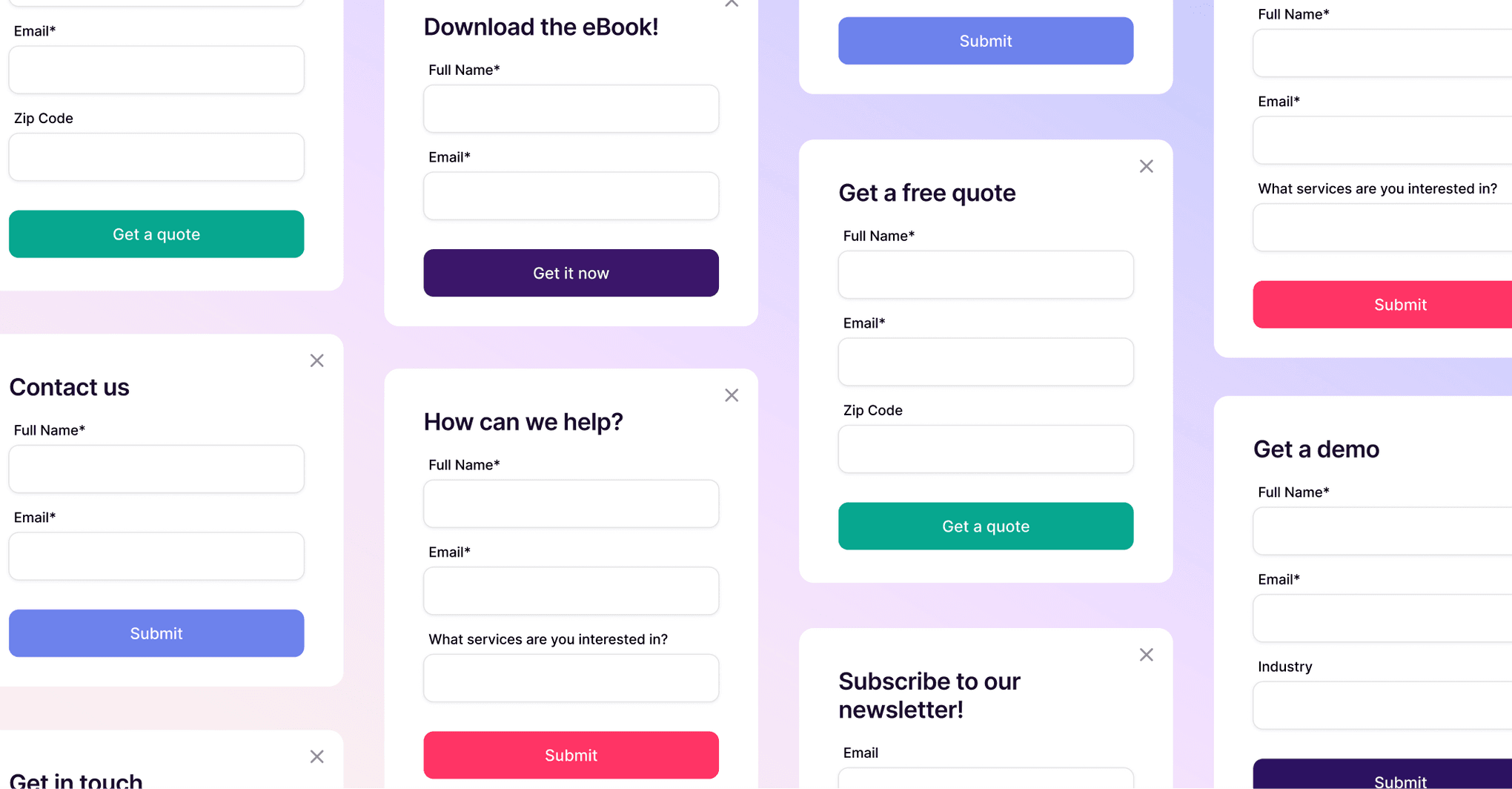Jemicah Marasigan
Content Marketing Manager
In a world obsessed with speed, scale, and automation, what if your secret weapon was... conversation?
Not sales scripts. Not nurture sequences. Not another high-converting landing page. We’re talking about the simple, powerful act of actually talking to people. Listening to what they need. Picking up the signals. Acting on feedback.
Because, truthfully, most companies are optimizing for the wrong thing. They’re measuring clicks, form fills, and lead volume like it’s the early 2010s. But the businesses that are thriving today? They’re doing something different.
They’re building relationships. And they’re doing it through a conversational growth strategy that turns real talk into real traction.
When you ignore conversations, you invite conversation debt
Here’s the thing no one talks about enough: when you ignore conversations, you rack up something we call conversation debt.
That’s what happens when you miss a customer’s early red flag. When you overlook a prospect’s hesitation. When you skip past the small talk and dive into the pitch.
And like any form of debt, it compounds. Small misunderstandings turn into missed opportunities. Poor handoffs create confusion. Disconnected teams start making decisions in a vacuum.
By the time you realize something’s off, the damage is done. The lead ghosted. The customer churned. The feedback never made it back to the product team.
And that’s not just unfortunate — it’s expensive.
Conversations are a business-wide growth strategy
Let’s break the myth that conversations are only a sales thing: they happen everywhere. And they matter at every single stage of the customer journey:
That curious person who left a thoughtful comment on your blog? That’s a conversation.
That new user who mentioned their onboarding was confusing? Another one.
That support ticket where a customer shared how they actually use your product? That’s insight with a capital “I.”
The best companies aren’t just talking. They’re capturing. They’re listening. They’re feeding these moments back into the business and shaping how they sell, market, build, and support. That’s a conversational growth strategy in action.
What happens when you do prioritize conversations?
You catch hesitations early and adjust your messaging before it’s too late.
You spot trends before they show up in your churn report.
You create content based on what people are actually asking, not what you think they care about.
You design onboarding experiences that match how people talk about their challenges—not how you internally map your product.
In other words, conversations mean growth.
Your CRM is only as good as the conversations it captures
A customer relationship management (CRM) platform doesn’t build relationships. Your team does. But your CRM can (and should!) keep the relationship alive.
If your CRM is just a glorified Rolodex, you’re missing the point. It should be your team’s collective memory — the place where conversations go to live, breathe, and grow into something bigger.
That’s why tools like Copper make it simple to keep track of real feedback, tag what matters, and turn one-off convos into go-to insights — without piling on more busywork for your team.
That means, with a CRM, you should be:
Logging real feedback, not just timestamps
Tagging insights and objections, not just "interested"
Noting tone, questions, aha-moments… because they matter
And it works: 78% of sales pros say their CRM improves sales and marketing alignment, and CRM adoption has been shown to boost sales by 29% and productivity by 34%.
But again, it’s not just about the CRM itself. It’s about the conversations it holds.
Get the latest from our blog every month
From silence to signals: How to turn conversations into impact
Want to turn your team into a conversation-powered growth machine? Start by putting a conversational growth strategy into practice.
Here are a few tangible, repeatable ways to turn day-to-day conversations into actual momentum:
1. Run a weekly conversation recap
Every week, have each team (sales, marketing, support, success) bring one key insight from a recent conversation. It could be a phrase someone used, a problem they shared, or feedback they gave.
Then ask: What do we do with this?
2. Tag and track conversation themes
You know those themes that sneak into every other convo? Pricing. Onboarding. That one competitor. Set up tags in your CRM so you can track them over time. Patterns will start to appear: ones that can shape your next campaign, feature, or sales strategy.
(If you're using Copper, this is super easy to set up and report on.)
3. Turn questions into content
If one customer asked it, others are probably wondering too. So build a loop: take those recurring questions and turn them into blog posts, sales enablement, FAQs, and help docs. Even a simple shared doc called “Things We’re Hearing” can go a long way.
4. Assign ownership to follow-up moments
Great convos deserve follow-through. If someone drops a smart feature request, shares a concern, or even gives positive feedback, make sure someone on your team owns that next step.
In Copper, for example, you can assign a task right from the contact or pipeline view so nothing slips through the cracks.
5. Celebrate conversation wins
Maybe a sales rep nailed a new insight on a demo. Maybe support turned a tricky situation into a raving fan.Share those moments in Slack. Praise them in your team huddles. The more you highlight the value of great conversations, the more your team will start to seek them out.
Because here’s the thing: conversations do drive growth — but only if you’ve got the systems to keep them moving. It’s not a one-and-done deal. You’ve got to treat conversations like a loop: hear something, share it, act on it, repeat.
Build a culture that turns conversations into action
All the systems and tags in the world won’t help if your team doesn’t value conversations in the first place. You won’t capture what you don’t hear and you won’t hear much if conversations are seen as just another checkbox.
To really turn conversations into momentum, you need to create a culture where sharing insights isn’t just allowed, it’s expected.
Here’s what that can look like in practice:
1. Create space for honest feedback
If your team doesn’t feel safe surfacing what customers are actually saying, you’ll only ever get filtered noise. That offhand comment in a sales call? That frustration buried in a support email? Those are signals. Make room for them. Celebrate the people who bring them forward.
2. Make logging second nature
"If it’s not in the CRM, it didn’t happen."
It’s harsh, but true. Set your team up with workflows that make logging easy: notes, quick tags, dropdowns, whatever works. The goal is to reduce friction so important insights don’t get lost in the shuffle.
Pro tip: With Copper, you can log convos right from Gmail and assign follow-ups in seconds.
3. Make sharing part of your rhythm
Marketing should know what prospects are pushing back on. Product should hear what customers are struggling with. Sales should understand what happens post-sale.
When teams share what they’re hearing, silos shrink and decisions get sharper.
Because when everyone’s trained to spot and act on conversational signals, you’re not just building a better process. You’re building a business that listens and grows because of it.
This isn’t about being “nice.” It’s about being strategic.
Listening doesn’t slow you down. It makes you sharper.
When you genuinely pay attention — before someone becomes a customer and long after — they start to trust you. And trust is what keeps people coming back.
It’s what turns customers into champions.
It’s what turns feedback into your next great idea.
It’s what sets you apart when everything else starts to look the same.
Because in a world full of noise, the companies that win are the ones that actually talk to people — and actually listen.
So here’s the real question...
What’s hiding in your inbox right now? What conversations haven’t been logged, explored, or shared?
Because if you want to grow your business, stop treating conversations like a bonus—and start treating them like the conversational growth strategy they really are.
Want to start tracking the conversations that actually grow your business? Try Copper free and turn scattered signals into a system that supports your whole team.






